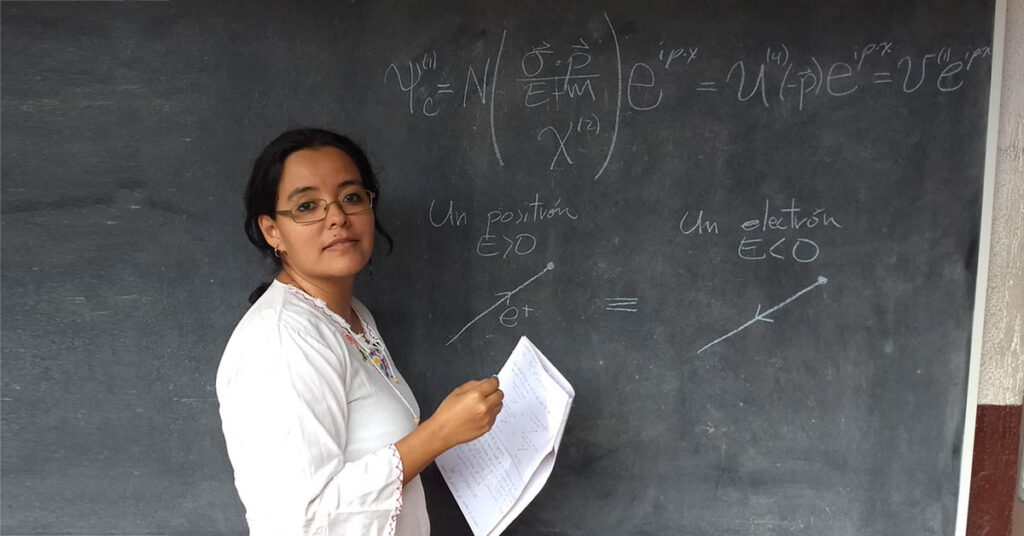Seeking the secrets of the universe in the particle
Categories: NEWS, INCLUSIVE RESEARCH
Tags: SDG5, AWARDS & PRIZES
An award-winning particle physicist in Guatemala hopes to convince society that basic science matters too

Her research focuses on the smallest of particles – but understanding them could ultimately lead to a better understanding the history of the universe.
“I try to understand the theories that explain nature on very, very small scales – subatomic scales smaller than the size of the atom,” explains Dr María Eugenia Cabrera’s Catalán.
As a Junior Professor in the School of Physical Sciences and Mathematics at University of San Carlos Guatemala (USAC), María researches the phenomenology of physics beyond the Standard Model of particle physics. Her work builds on the discovery of the Higgs boson particle in 2012, expanding the knowledge of what we know about the Standard Model of particle physics and the fundamental forces of nature.
As with much basic science, it’s a field with more questions than answers. And the fact that Maria’s research is theoretical rather than applied makes it even harder to get funding in her country, where science is less of a priority than in more affluent countries and where scientists have less visibility on the global stage.
The contrast became apparent after María started her career in Europe. Theoretical physics was in the spotlight at the Institute for Theoretical Physics in Madrid, where she earned her PhD, and at the GRAPPA Institute at the University of Amsterdam, where she did postdoctoral research. Funding was readily available for Maria and her colleagues to pursue their research.
But when she returned to Guatemala in 2017 to join the USAC faculty, she encountered a serious obstacle: the country’s need for applied science to solve urgent problems, and the difficulty in securing research funding for basic science, caused her to question whether she should do applied science instead:
I started to realize that here in Guatemala, fundamental science isn’t as important to people. People want to see immediate results, and I think that’s important. … So sometimes I felt like maybe I should do more applied physics now that I was here.
Ultimately, though, her passion for particle physics won out. Maria studies dark matter, the most abundant form of matter in the universe. Observed only by its gravitational interactions, dark matter is essential to developing a more fundamental theory of nature. Through her calculations and computer simulations, Maria studies the interactions between newly discovered particles such as the Higgs boson and potential dark matter candidates to determine what is possible to measure. Understanding their dynamics can help scientists understand the interactions that could occur in particle collider experiments or how dark matter interacts with the Earth in underground experiments.
Over time, Maria has covered significant ground in her field while taking steps to advance the plight of science and scientists in Central America.
Now, she is being recognized globally as a winner of the 2021 OWSD-Elsevier Foundation Award for Women Scientists in the Developing World. She received the award at the virtual 2021 AAAS Annual Meeting earlier this month.
Read the full article on Elsevier Connect: “Seeking the secrets of the universe in the particle“, Alison Bert, 19 February 2021.

















